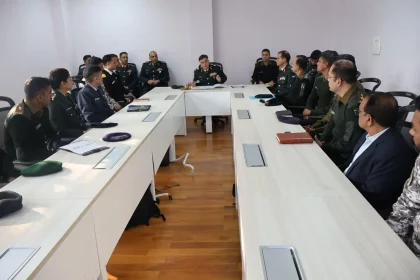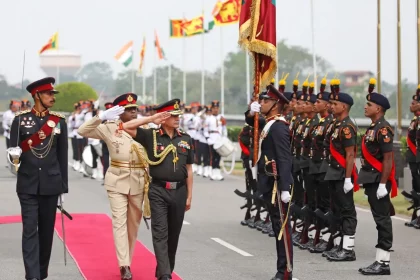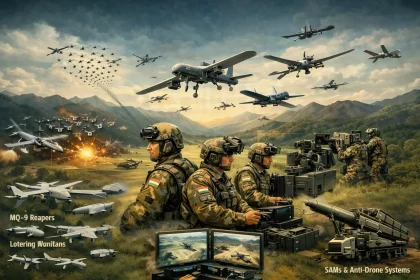Lt Gen Praveen Bakshi Addresses Joint EMI/EMC Course at MCTE, Mhow
Tri-service officers begin specialised training to enhance electromagnetic spectrum management and interoperability in modern military operations.
COAS General Upendra Dwivedi Reviews Guard of Honour at Sri Lanka Army HQ, Holds Talks on Defence Cooperation
India–Sri Lanka Defence Ties Strengthened Through High-Level Military Engagement and Equipment Handover.
Fire and Fury Corps Mourns the Loss of Subedar Stanzen Chostak
Fire and Fury Corps expresses solidarity with the bereaved family, honouring the soldier’s service and sacrifice to the nation.
What Is Shaktibaan Regiment? How India Is Preparing for Drone-Led Wars with 15–20 Shaktibaan Drone Regiments
India’s ambitious Shaktibaan Drone Regiments mark a doctrinal shift toward unmanned, precision, and network-centric warfare, positioning the Army for future…
Commodore Mahesh Moudgil Assumes Charge as Chief Staff Officer (Operations), HQ Southern Naval Command
Seasoned Gunnery and Missile Warfare specialist brings extensive command and fleet-level experience to strengthen operational readiness at Southern Naval Command.
Major General Ajay Feroze Shah Assumes Charge as Chief of Staff, Andaman & Nicobar Command
Strengthening Joint Leadership at India’s Only Tri-Service Theatre Command.






